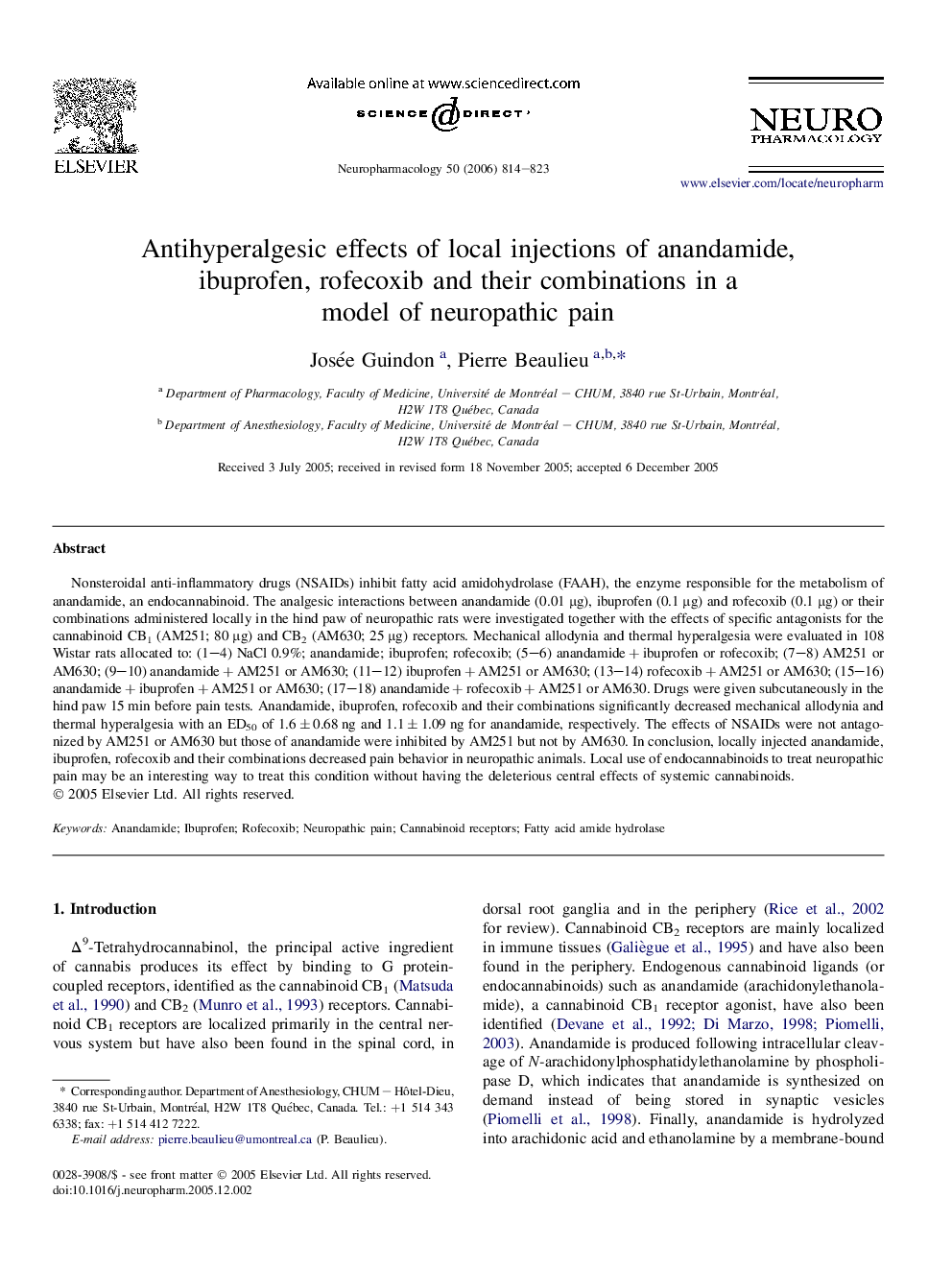| Article ID | Journal | Published Year | Pages | File Type |
|---|---|---|---|---|
| 2495403 | Neuropharmacology | 2006 | 10 Pages |
Nonsteroidal anti-inflammatory drugs (NSAIDs) inhibit fatty acid amidohydrolase (FAAH), the enzyme responsible for the metabolism of anandamide, an endocannabinoid. The analgesic interactions between anandamide (0.01 μg), ibuprofen (0.1 μg) and rofecoxib (0.1 μg) or their combinations administered locally in the hind paw of neuropathic rats were investigated together with the effects of specific antagonists for the cannabinoid CB1 (AM251; 80 μg) and CB2 (AM630; 25 μg) receptors. Mechanical allodynia and thermal hyperalgesia were evaluated in 108 Wistar rats allocated to: (1–4) NaCl 0.9%; anandamide; ibuprofen; rofecoxib; (5–6) anandamide + ibuprofen or rofecoxib; (7–8) AM251 or AM630; (9–10) anandamide + AM251 or AM630; (11–12) ibuprofen + AM251 or AM630; (13–14) rofecoxib + AM251 or AM630; (15–16) anandamide + ibuprofen + AM251 or AM630; (17–18) anandamide + rofecoxib + AM251 or AM630. Drugs were given subcutaneously in the hind paw 15 min before pain tests. Anandamide, ibuprofen, rofecoxib and their combinations significantly decreased mechanical allodynia and thermal hyperalgesia with an ED50 of 1.6 ± 0.68 ng and 1.1 ± 1.09 ng for anandamide, respectively. The effects of NSAIDs were not antagonized by AM251 or AM630 but those of anandamide were inhibited by AM251 but not by AM630. In conclusion, locally injected anandamide, ibuprofen, rofecoxib and their combinations decreased pain behavior in neuropathic animals. Local use of endocannabinoids to treat neuropathic pain may be an interesting way to treat this condition without having the deleterious central effects of systemic cannabinoids.
